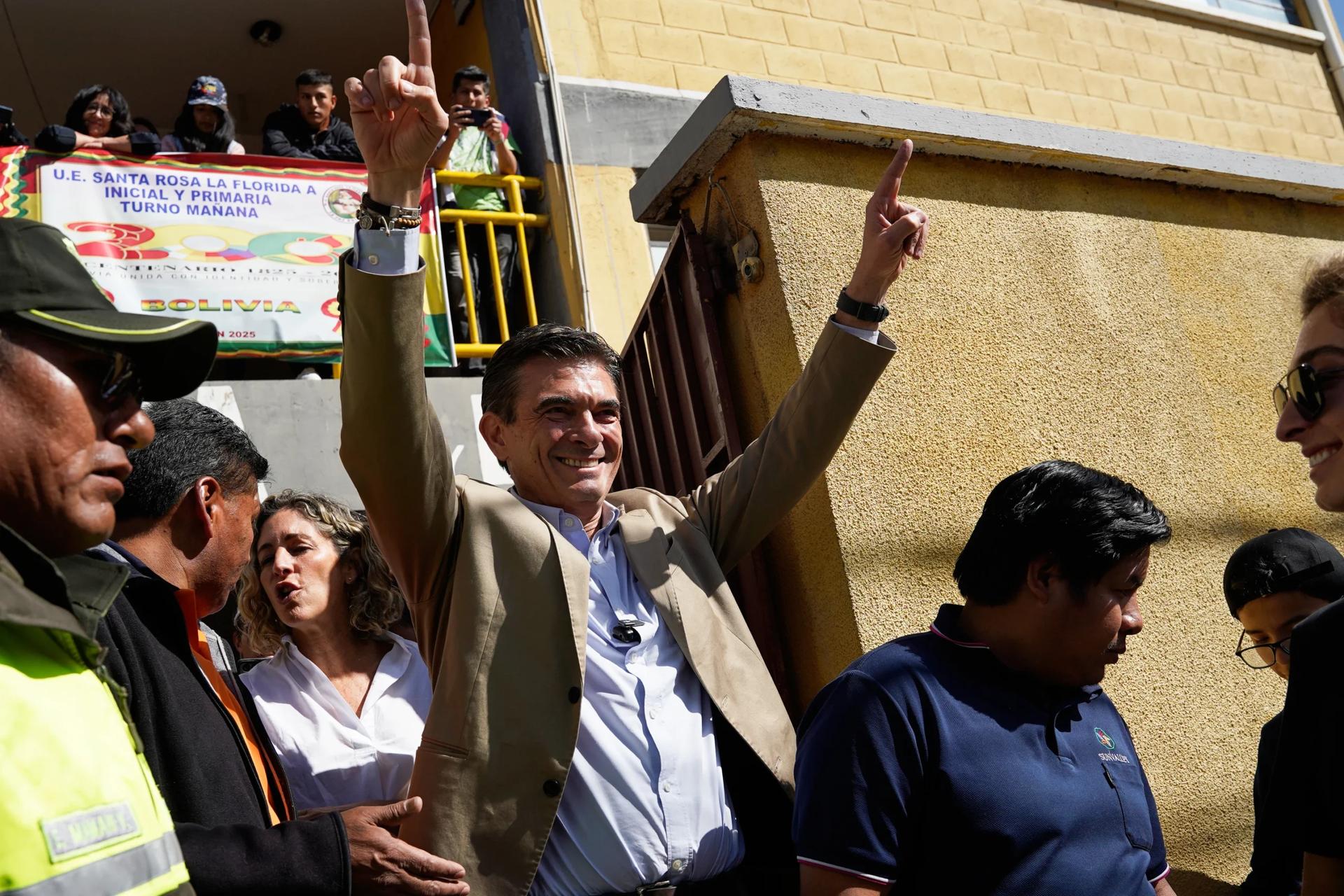SÃO PAULO, Brazil – As the two presidential front-runners prepare for the second round of the Bolivian elections, scheduled for Oct. 19, the Church breathes a sigh of relief, knowing that both centrist candidate Rodrigo Paz Pereira and right-winger Jorge Tuto Quiroga will keep a good relationship with Catholics, after almost 20 years of tensions with the government.
Socialist candidates were strongly rejected by the electors, while Paz received 32.06 percent of support and Quiroga received 26.70 of the votes, securing their participation in the second round.
“Both Tuto and Paz are Catholic. We haven’t had any formal encounters with them, but we know they would be open to that,” said Bishop Giovani Arana of El Alto.
He recalled that Tuto was part of the negotiation table called by the Church in 2019, after former President Evo Morales resigned for being accused of electoral fraud and the country plunged into chaos.
Italian-born Bishop Eugenio Coter of the Vicariate of Pando agrees. He said any of them “will open a new era in the relations with the Church, one of less repudiation of it by the government.”
“Both of them have conditions to understand the Church’s activities and the Church’s behavior, including that the Church, with its criticism, must help the politicians to work better,” he told Crux.
After the election, the Bolivian Conference of Bishops issued a public letter in which the tone was of hope.
“We welcome with hope the electoral results, which open a new chapter in the political history of the country. We believe that journey has given voice to all Bolivians that struggle and long for significant changes in Bolivia,” the statement read.
Indeed, since Morales’s first tenure, which began in 2006, the Church progressively lost part of the social presence it used to enjoy in Bolivia due to measures taken by his administration.
“MAS [movimiento al socialismo, or movement towards socialism] is a left-wing, indigenist political party that has always emphasized its combat to ‘colonialism’. We didn’t disagree with them, but that rhetoric of decolonialism was many times used to attack the Church,” Arana said, adding that the episcopate has repeatedly apologized for its mistakes in the past.
“The government really manipulated that issue in order to go against Catholicism,” he said.
During MAS administrations, the government prioritized traditional Andean religions to the detriment of Christianity, despite the fact that about 70 percent of the Bolivians profess Catholicism and at least 14.5 percent are Evangelical.
The government’s hostility to Catholicism resulted in a lack of support to the Church’s social works in areas like education and healthcare.
“The government failed to understand that it should collaborate with us for the people’s sake,” Arana said.
Morales promoted an educational reform that led to several changes in the way the Church had been acting. Themes like decolonialism and the so-called gender theory were prioritized. A Catholic school that trained teachers for decades was shut down by the government.
“The Church formed teachers of religion. Suddenly, there were no more religion classes in the public school system, only a course concerning values, religion and ethics,” Arana recalled.
Since then, the Church has been advocating that parents should be able to choose if their children will learn about Catholicism or not. He said it’s not easy to change such a policy now, given that a constitutional reform would be needed.
Besides the direct aggressions of Evo Morales’s party to the Church, the bishops had also been criticizing the government’s incompetent management of the economy over the past years, especially in President Luis Arce’s tenure.
The government had been giving subsidies for fuel in order to keep the prices down, but it ran out of dollars and subsequent crises emerged. Not only the lack of gas became chronic, but also of other essential items, like beef. The informal economy grew from 62.4 percent in 2005 to 84.2 percent in 2024.
“The Church’s criticism is not meant to destroy anyone, especially a politician, but to point to possible answers demanded by reality,” Coter said.
He emphasized that the Bolivian Church keeps institutions like Fundación Jubileo, which gathers a number of experts in different fields, like economists and environmentalists, whose opinions could help the government to take the necessary path.
“So, when we say something about the government, we do so because we are worried about the country,” he added.
Coter thinks “the economy will certainly get better with the new president, although the needed adjustments will provoke suffering among the poor.”
“The bonus on fuel will certainly be canceled, a measure that will require a plan to help the poor while the economy is not reactivated,” he said.
He’s equally hopeful about the reduction of corruption and about an increased credibility in the international arena.
Arana is also optimistic.
“We only pray that the people’s expectations are not defrauded by those who will take office,” he said.















